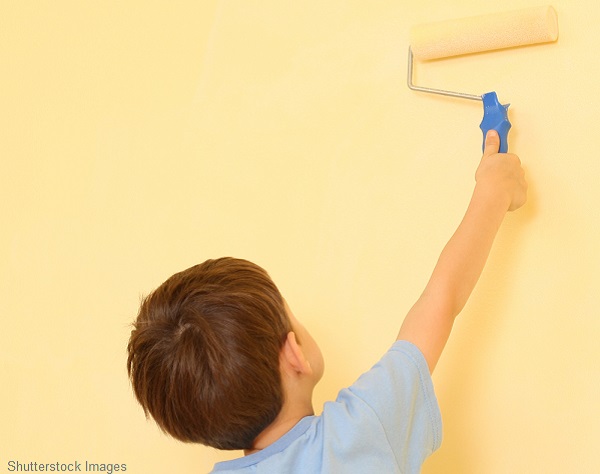|

Experiential Learning is Children's Work
By Wendy Priesnitz
Children’s ability to practice experiential learning through day-to-day living is the foundation of what happens in democratic schools and life learning homes alike. Part of that experiential learning is kids doing real work in the real world, motivated by their own real interests and goals.
By that, I don’t mean pseudo-work where kids are “allowed” to “help” adults or where they pretend to do real work with the aid of toy tools. What I am referring to is children being involved, in age-appropriate ways, in the everyday life of their communities, alongside their parents and/or other adults.
Unfortunately, there are few places where children can experience the adult world in that way. Most children – and even many homeschooled ones – don’t have nearly enough opportunities to be with adults who are doing their own thing in the real world and not, as John Holt once put it, “just hanging around entertaining or instructing or being nice to children.”
The working world of adults is not very accessible to children because we fear they will get hurt, get in the way of or slow down production, or abuse or break the equipment. But in my experience, that has not been the case. Take my own family as an example.
Our life learning daughters (now in their forties) grew up living, learning, and working in the midst of our busy home-based publishing business. They had access to all the tools of that business and never abused them. They mimicked the careful way that we used those tools and respected them as necessary for making our family’s living. More importantly, they used those tools in creating their own businesses, which we respected in return.
There are many opportunities for children and young people to learn in and be of service to the real world and, at the same time, participate in experiential learning. These include volunteering with community organizations, participating in their parents’ businesses or at their workplaces, working for pay or as apprentices at neighborhood businesses, and running their own enterprises.
I don’t want to romanticize the past or ignore abuses against children. However, at other times and in other places, children have had the opportunity to do real work at their parents’ side, as well as on their own accord. In our more complex society, this same type of opportunity and respect for children’s abilities is still possible if we all share a sense of responsibility for helping develop the minds and attitudes that will lead us into the future. Today, no one has all the experience and information necessary to completely prepare young people for a rapidly developing future. But we can share our skills and experiences with our children or take on other people’s kids as apprentices to pass along our knowledge and attitudes.
Kids need the sense of accomplishment that comes from being trusted with a real job to do in the real world. They benefit from the increased self-esteem that comes from participating – at whatever level – in a functioning group.
Everyone benefits when kids develop the confidence that accompanies being in control of themselves and of their surroundings. And they don’t need the sort of “protection” that results from lack of adult trust and preparation and that keeps them sitting on the sidelines and away from meaningful work. So, often, the adults in a life learning family may need to sort out the mindless bureaucratic requirements from the necessary safety concerns.
Aside from safety, there are other reasons why children are sidelined in ways that prevent experiential learning from happening. Showing respect for a child’s developing skills takes patience. Doing a task ourselves is usually easier and more efficient than allowing the time needed for a child to do it. Children’s results might be not good enough for the satisfaction of perfectionist adults. And some people just underestimate what a child can do.
However, personal empowerment begins with realizing the value of our own life experience and potential to affect the world. For that reason alone, I believe that our children deserve the opportunity to be part of – and learn from – the daily lives of their families and communities.
Wendy Priesnitz is Life Learning Magazine’s editor, the author of 13 books (so far), and the mother of two daughters who learned without school in the 1970s and ‘80s. Portions of this article are based on an essay that appears in the book Life Learning: Lessons from the Educational Frontier, which she also edited.
Copyright © Life Media
Privacy Policy
  
  

|

